We kindly inform you that, as long as the subject affiliation of our 300.000+ articles is in progress, you might get unsufficient or no results on your third level or second level search. In this case, please broaden your search criteria.
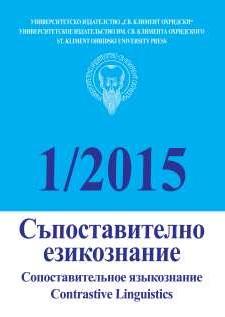
This article is devoted to the functioning of the category of verbal aspect in phraseological units (idioms) in Modern Greek and Bulgarian. In contrastive terms we describe and analyze specific cases of use of aspectual forms in phraseology. Depending on the aspectual nature of the verbal component it is possible to separate groups of idioms: with regular aspectual opposition or aspectual defectiveness of the verbal component (Imperfectiva tantum or Perfectiva tantum) or restrictions on use (predominant or preferred uses of the aspectual forms). We present the main factors governing the behavior of aspectual forms in the phraseology of both languages.
More...
This article is the first part of a series dedicated to the cognitive characteristics of noun phrases (NPs), namely to the taxonomy of indefinite NPs related to their referential status in view of the opposition specific ~ non-specific. This opposition carries particular importance for the logical-semantic representation of the utterance. In the study of foreign linguistics both terms are often used in an inconsistent and contradictory manner; consequently, this work represents an attempt to bring theoretical clarity regarding their semantics and use.
More...
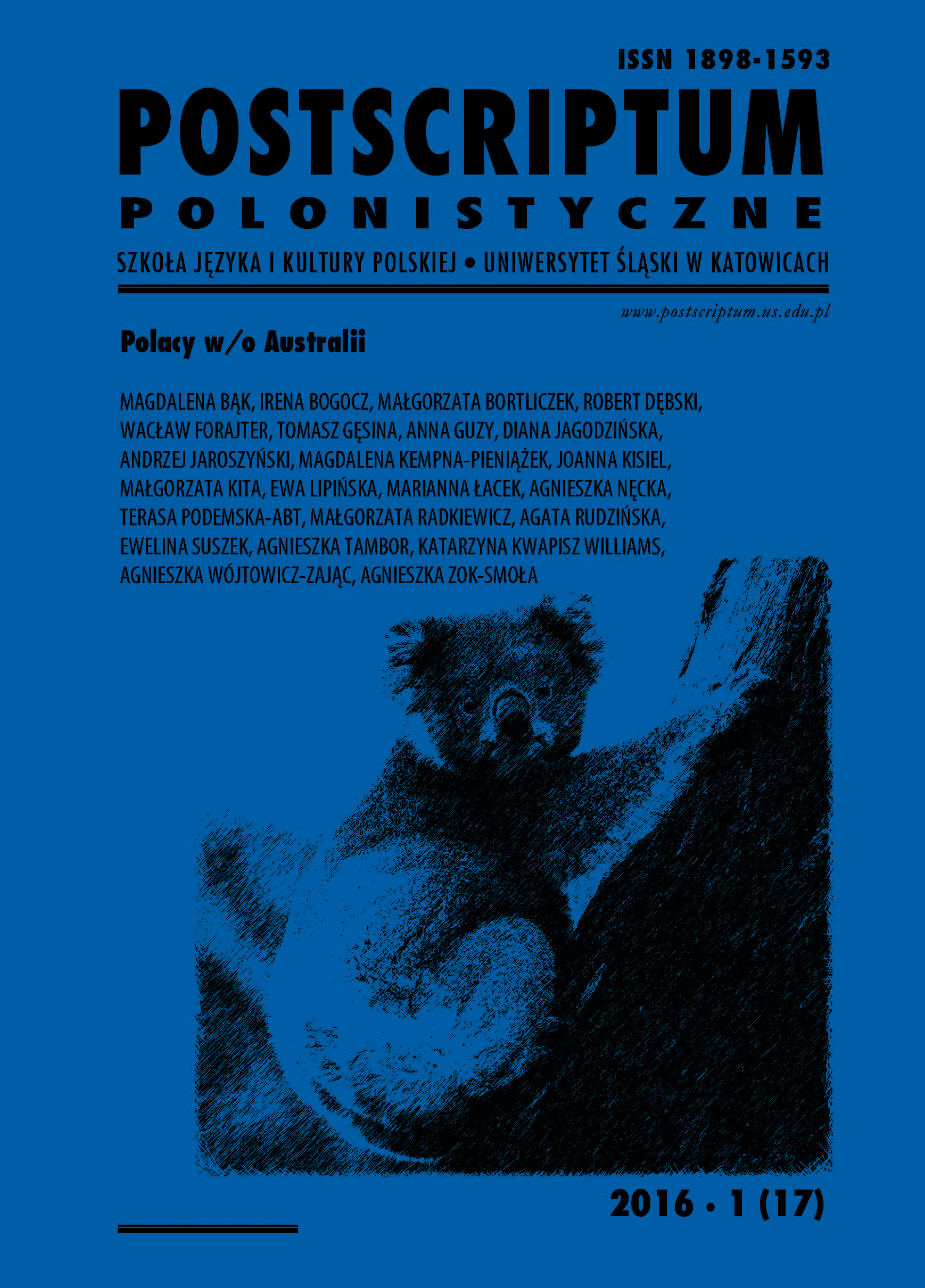
The article presents Polish research on the category of ‘space’, which influenced the shaping of the concept of geopoetics in Polish literary studies. Geopoetics is understood, according to Elżbieta Rybicka’s guidelines, as ‘concept-in-action’. The author of the article begins with theoretical considerations, then presents contemporary foreign theories and finally analyses theoretical works of Michał Głowiński, Henryk Markiewicz, and Janusz Sławiński. He also discusses the concept of ‘new regional studies’ in the context of the spatial turn. Using Stefania Skwarczyńska’s works, the author of the article claims ‘new regional studies’ to be one of the crucial elements of geopoetics.
More...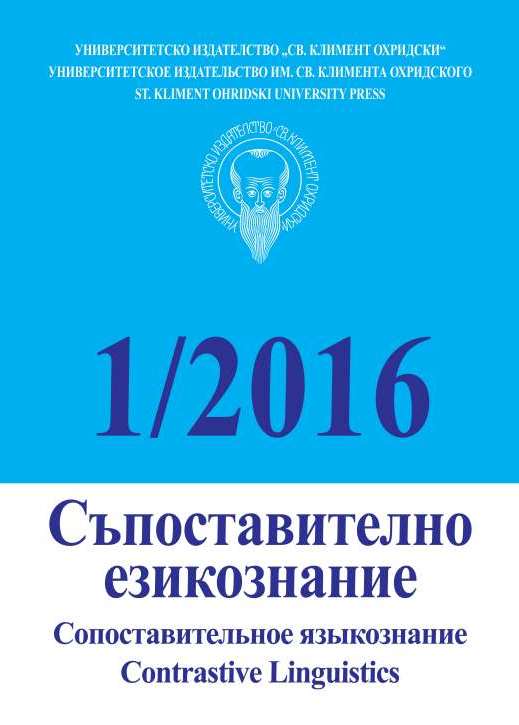
The article examines the origin of the nomination of the herbaceous plant oregano (Rus. душица обыкновeнная). The main object of analysis are the linguistic manifestations of specific and functional signs as the basis of name, and the ways of their expression. Based on this are determined the models of nominative row in Russian and Bulgarian languages. The study of nominative rows of the plant oregano entering the thematic group of phytonyms „Medicinal herbaceous plants of the family Lamiaceae,“ is the most acceptable method for the study of the principles and ways of nomination of objects possessing common properties. This method facilitates the study to focus on the many names and identify the current relations between marked objects and their names, as well as to reveal the systemic organization of thematic vocabulary groups. Furthermore, comparison of current models of nominative rows in the system of the two languages (Russian and Bulgarian) provides an opportunity to indicate the integrity of nominations of the studied thematic group.
More...
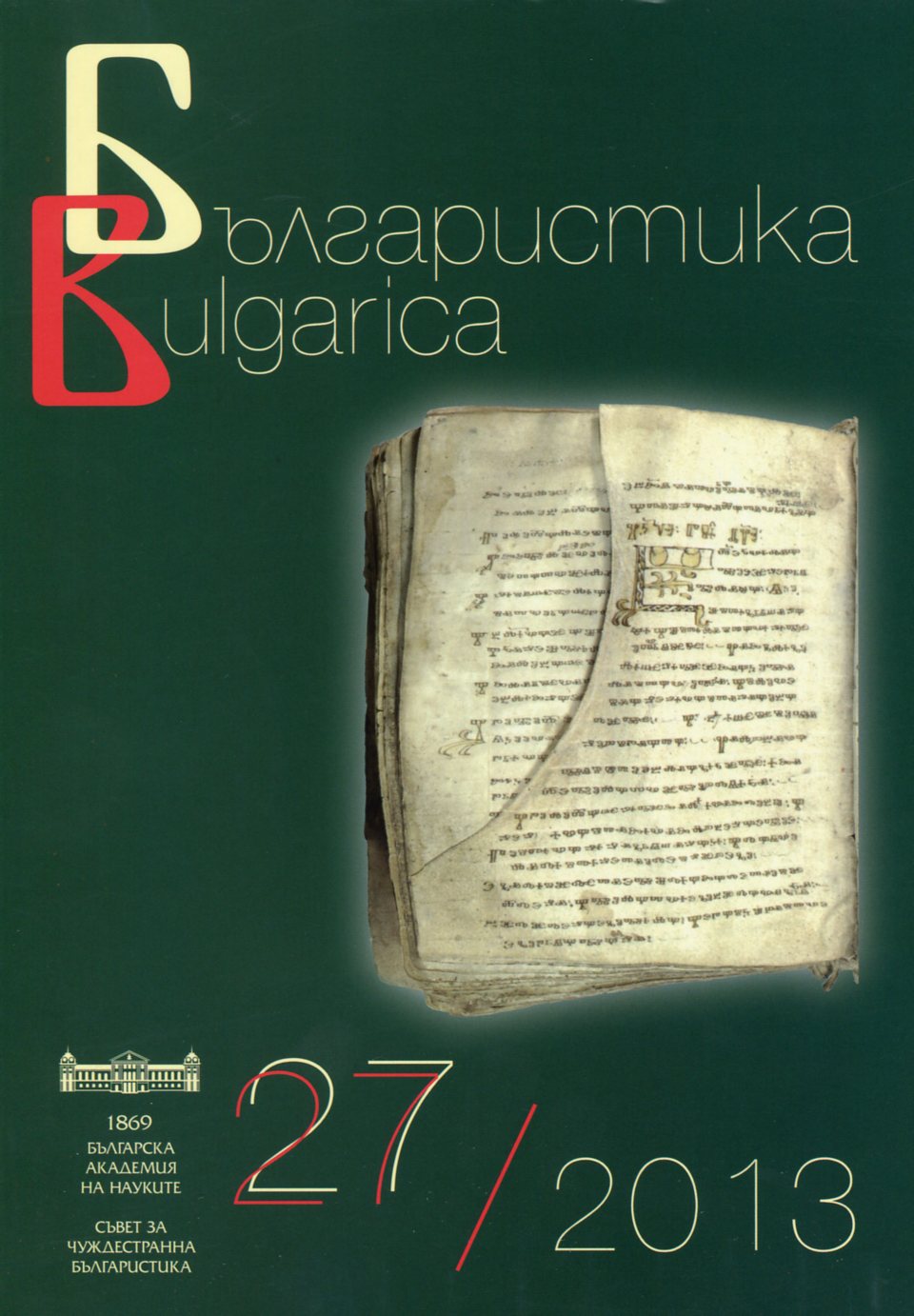
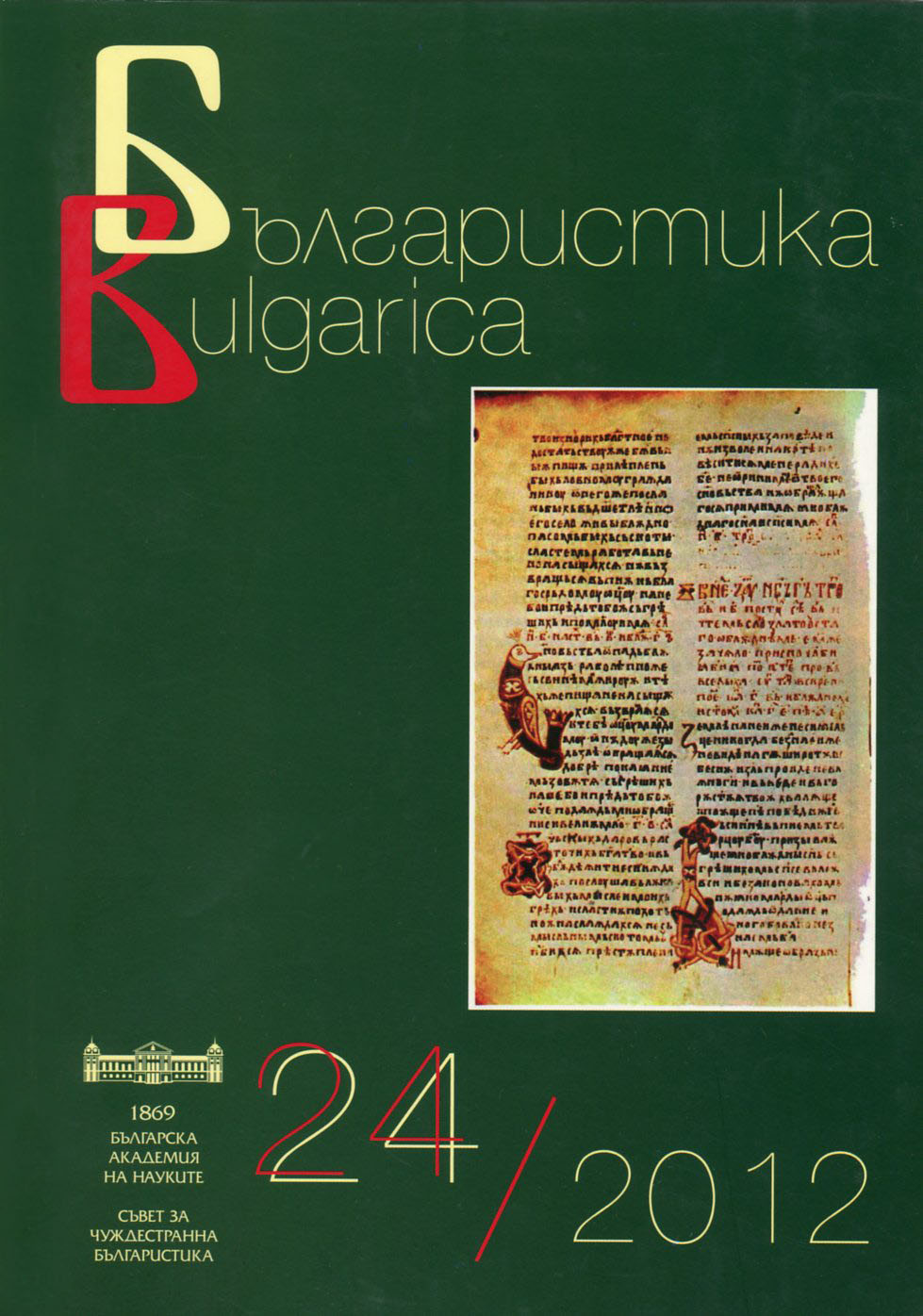
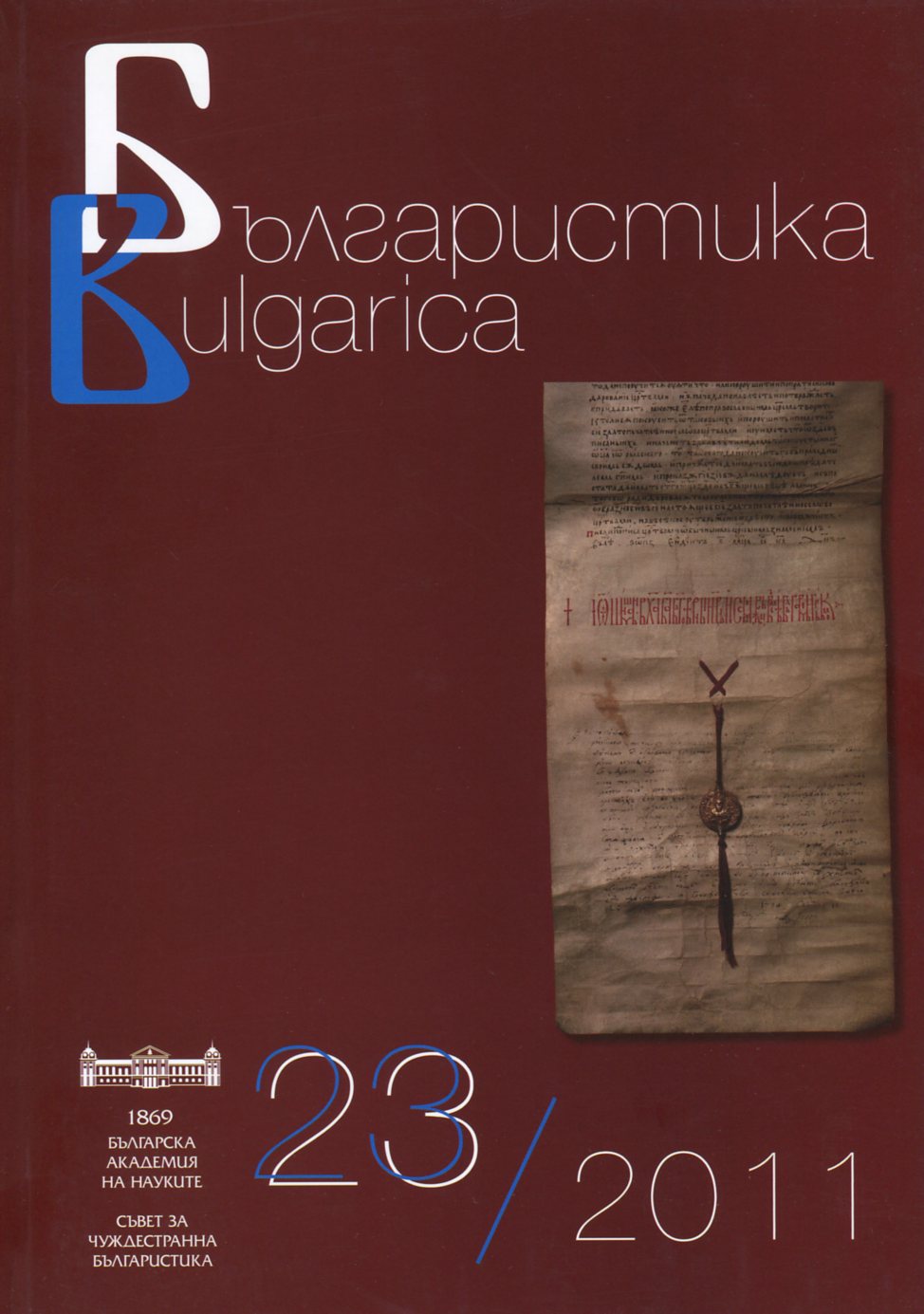
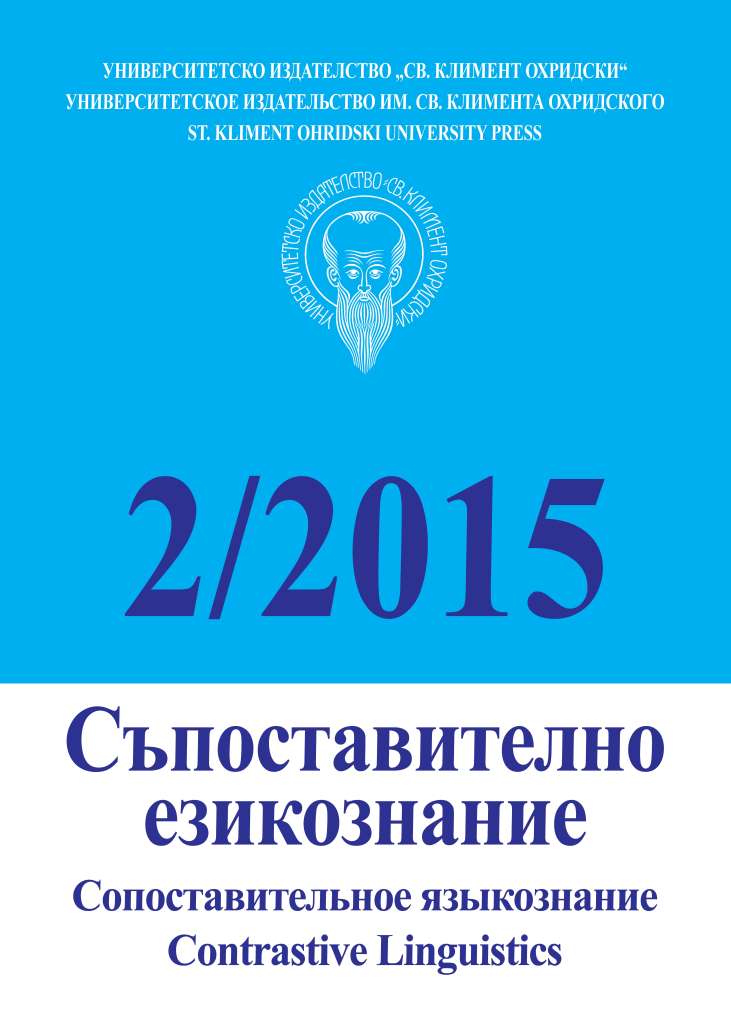
The aim of the paper is to cogently present the results of a synchronic contrastive analysis of resultativeness in contemporary Bulgarian and Czech. The features of structural asymmetry between the two languages in the field of resultativeness are discussed on the basis of the potential morphological, syntactic and lexical resultatives, which build up the core and periphery of the two functional-semantic micro-fields of resultativeness.
More...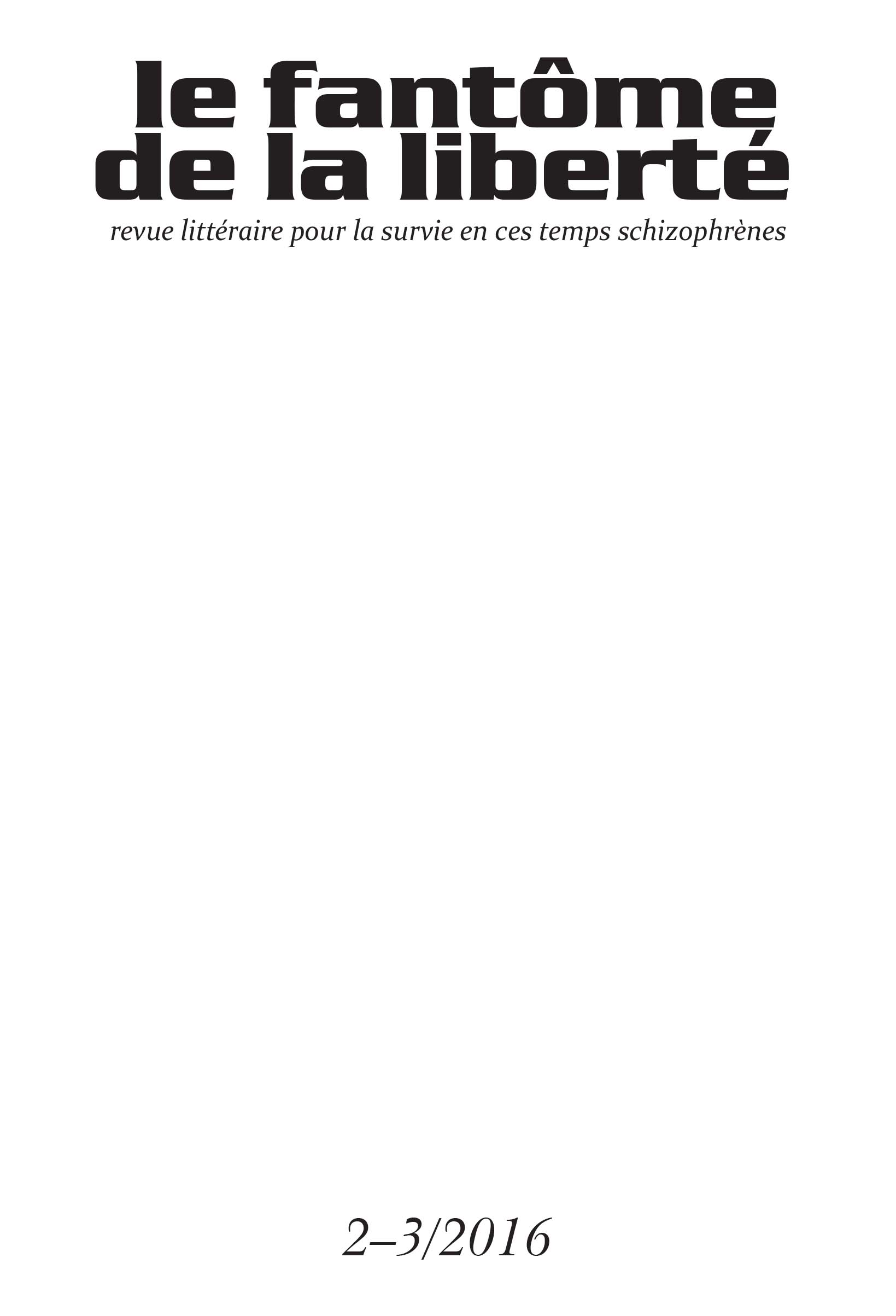
Imaginez la situation où les francophones de France, de Belgique, du Canada et de l’Afrique se mettent d’un coup à prétendre parler des langues différentes et à appeler leurs « langues » par des noms différents. C’est exactement le cas des locuteurs serbo-croates en Croatie, en Serbie, en Bosnie et au Monténégro. Il faut noter que les différences linguistiques y sont moindres qu’entre francophones de diff érents pays (Thomas, 2003). Elles sont également pluspetites qu’entre germanophones d’Allemagne, d’Autriche et de Suisse (Pohl, 1996), qu’entre anglophones de Grande-Bretagne, des États-Unis du Canada et de l’Australie (McLennan, 1996), entre hispanophones d’Espagne et d’Amérique Latine, entre lusophones du Portugal et du Brésil (Thomas, 2003). Elles sont plus insignifiantes encore que les différences entre les langues usités par les Blancs et les Noirs des grandes villes américaines (Gröschel, 2003).
More...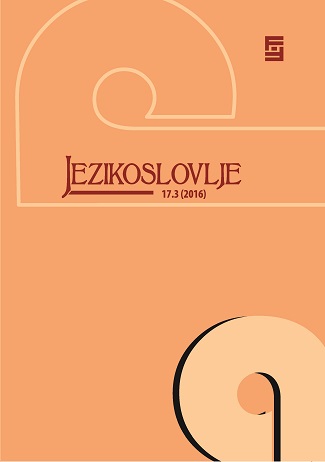
In the first part of this paper two existing models of teaching meanings of verbal prefixes and the process of verbal prefixation in Croatian as a second and foreign language are discussed – the verb-centric model known as the verbs in context model and the prefix-centric model known as the prefix by prefix model. In addition to several positive aspects of these two models, their shortcomings are identified as well, and consequently the need for the development of a new model of teaching verbal prefixation in Croatian as a second and foreign language is recognized. The paper proposes a new model based on the description of verbal prefixes and their uses as produced within cognitive linguistics theoretical framework. It can be presupposed that this newly devised model will be superior to the previous two models since it is more concrete, simple, logic and clearer concerning the presentation of the process of verbal prefixation.
More...
The paper considers the perception of derived words related to Russian expressive wordformation by foreign students. Analysis of literary translation is used as a research tool. The author defines special methods of rendering a word-formation meaning of derived adjectives and nouns in a typologically close language as well as determines the semantization strategy for the derivatives of this type in a foreign audience.
More...
The paper considers the significance and fundamental aspects of the English-Tatar lexicographical school and its role in creating the multilingual Russian-Tatar-English environment. The principles of dictionary compilation at the micro- and macrolevels, which were introduced about 20 years ago, are reviewed and reconsidered. The advantages of lexicographical developments contributing to further advance in this scientific area are emphasized.
More...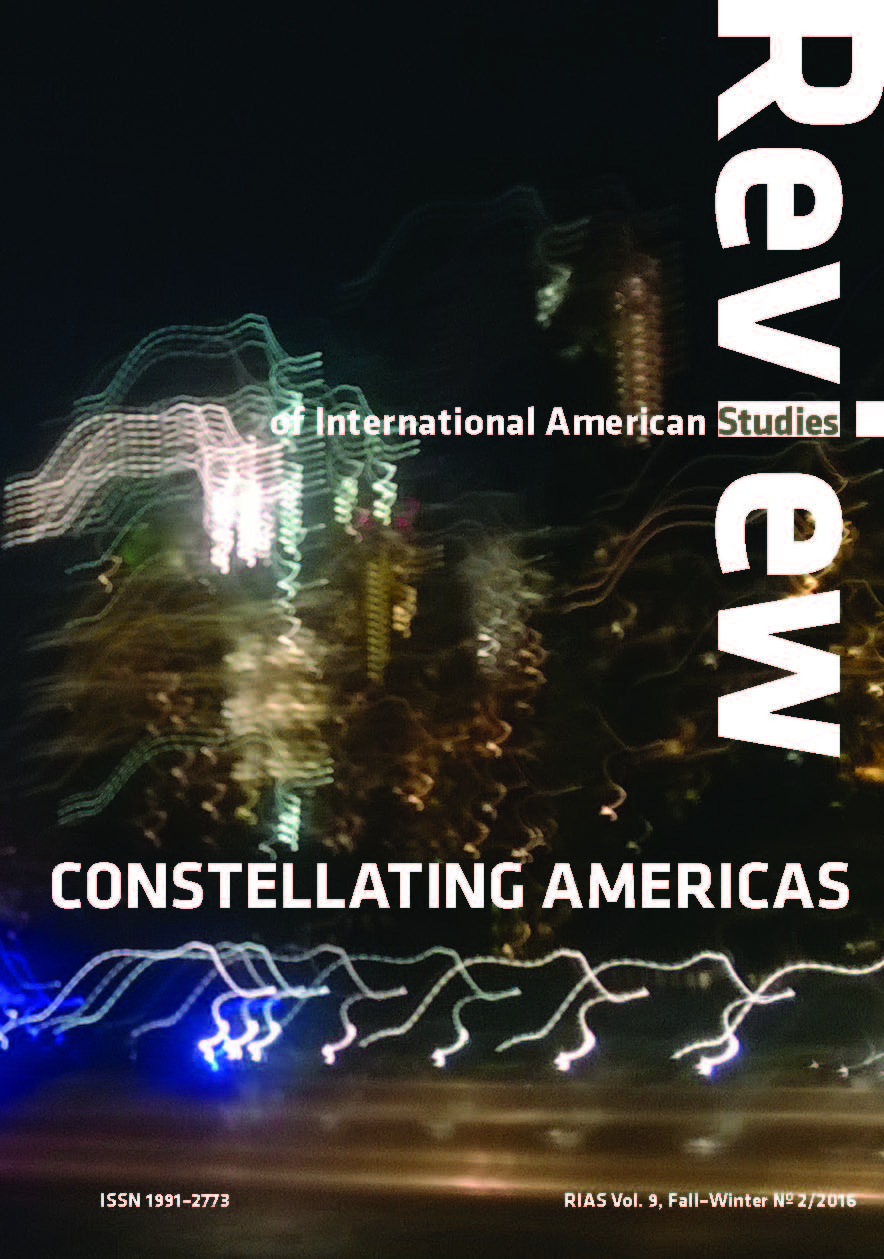
The article explores the convergence of four major American novelistic traditions (the mating-marriage tale, the immigrant story of assimilation and acculturation, detective fiction, and socio-political/socio-economist fiction) in Chang-rae Lee’s acclaimed first novel, “Native Speaker” (1995), which dramatizes the tragic dynamics between ambition, money, power and moral loss and which offers the reader an insight into a late 20th century narrative of the formation of the new immigrants in the US, where earlier Euro-and, particularly, Anglo-norms are contested by multicultural, multilingual forces driven by globalized hyper-capitalist superstructures. In this unsettled setting, the common 20th century master plots of white-as-native tensions with non-white-immigrantas-the-Other are interrogated, fragmented and re-assembled in a kinetic metropolis of multiple Otherness, in which money and power, two intrinsically intertwined forces, rule. In the novel’s increasingly melodramatic narration of disillusionment, violence and murder, its more primal emotional trajectory arguably is not heterosexual romance, with which the novel begins and ends, but with the quest for a male identity congruent with that generally adopted as a model in the United States. In the novel, male identity is problematized by its embedded contextualization in multiple-tongued, duplicitous and abject ethnic identities, still subordinate or subaltern to white-Anglophone-centric norms. The elder Korean male figures (the father, the political mentor), present in the novel, fail to, or cannot, serve as American fathers. Without fathers able to nurture the immigrant son to a psychologically successful manhood (dramatized as a subject possessing authentic agency with the capacity to sustain intimate and social relationships), the novel’s late 20th century re-inscription of the quintessentially American theme of quest for individual self takes the English language (also allegorized in the figure of the upper-class white wife, Leila) as the sentimental trope by which a national manhood is to be achieved—a post-immigrant salvation that is figuratively and literally articulated.
More...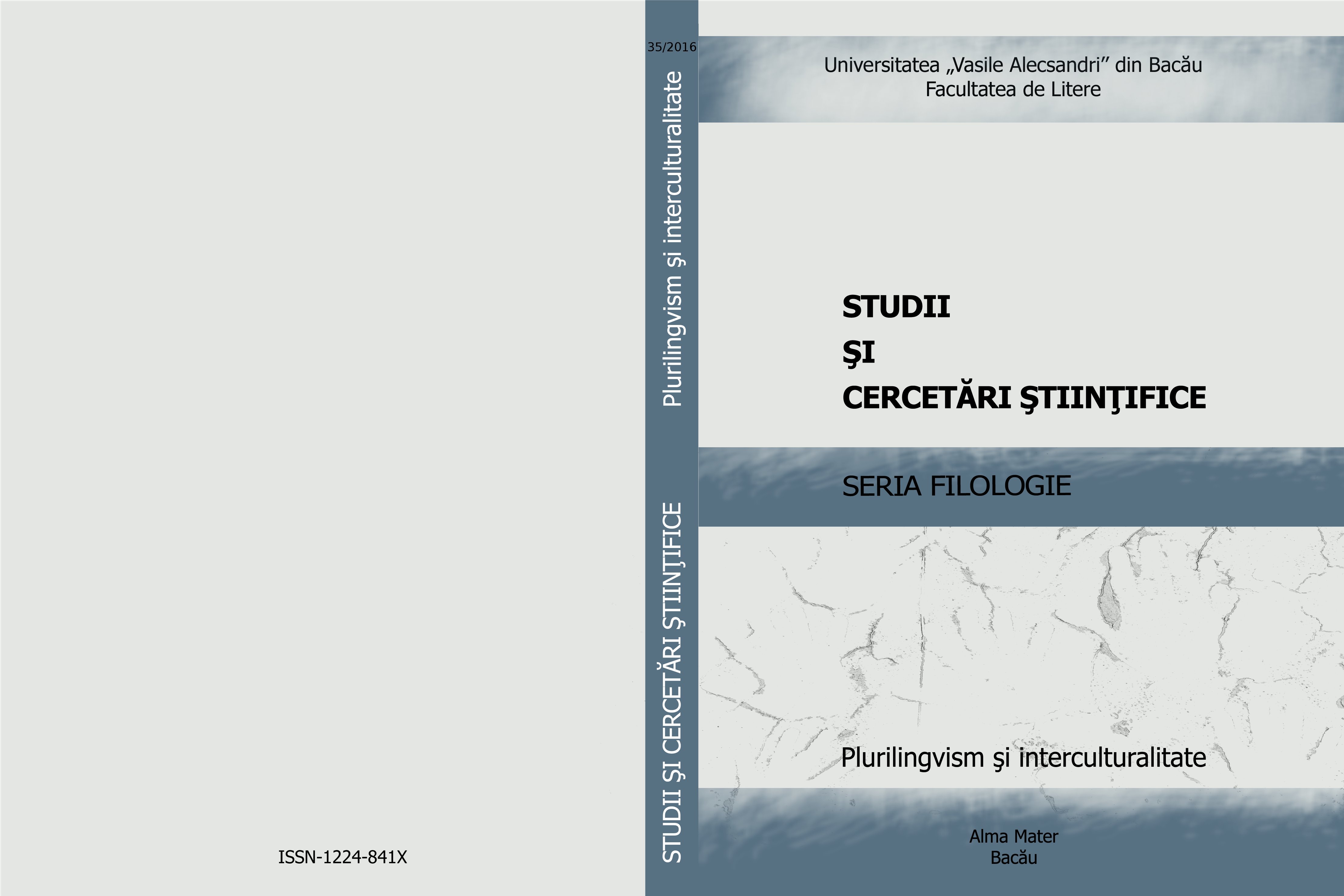
Actually, sporting language is very in fashion due to the fact that it is used not only in media papers, but also in the online ones. There are many words borrowed in the Romanian vocabulary from the sporting domain. In our paper, our purpose is to bring into focus the manner in which the sporting language that has, especially, English etymology is going to reflect into Romanian lexis.
More...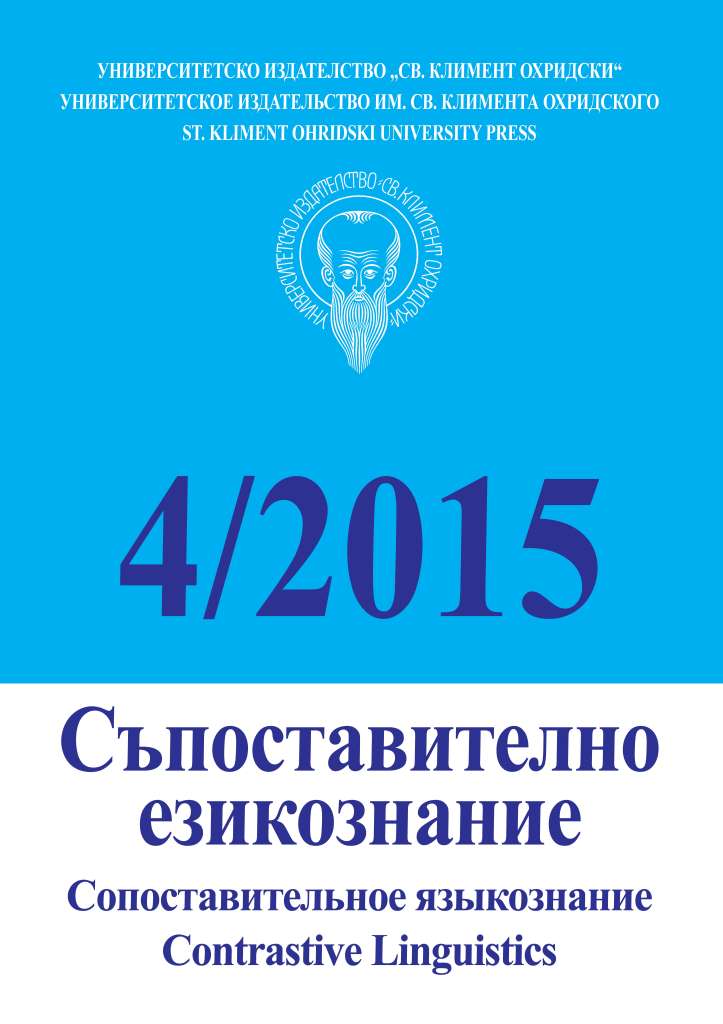
Sphota is a specific concept from the Indian linguistic and philosophical tradition, which has no analogue in Western linguistics. Sphota is the word in the mind or the mental sound that "illuminates" the signified. The concept is presented systematically by the ancient Indian philosopher and grammarian Bhartrihari in his treatise About the sentence and the word. Among the main features of the concept are integrity, lack of sequence and temporal specificity. It transmits its own form together with the meaning. Furthermore, the form has a leading position. From the standpoint of modern psycholinguistics, the ideas of Bhartrihari are more consonant with the connectionist language and less with the serial ones.
More...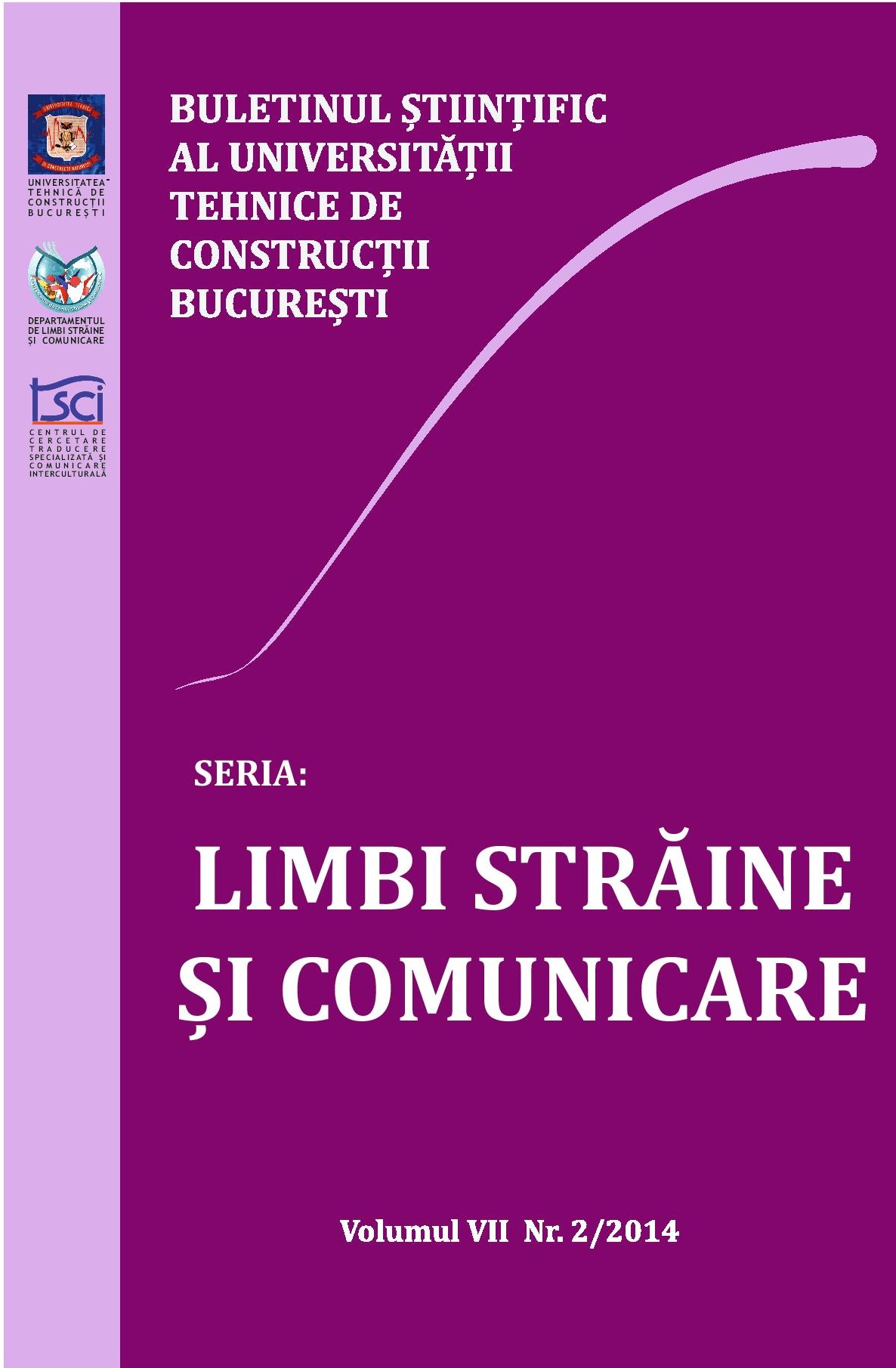
Translation Studies has crossed a tumultuous interval of theorization. But has it passed the linguistic limits instituted by a semiotician like Umberto Eco? Wouldn’t be the time to access more courageously the intersemiotic interregnum with its heterogeneous transfer of signs? As it happens in advertising, concrete poetry, tattoos, and stage or filmed version of famous texts? We have gradually accepted that in the postcolonial and cross-cultural epoch what matters is not consensus, but negotiation and understanding. We assimilated the postmodern lesson about Grand Narratives (J–F. Lyotard) and the subjectivity of recorded history. So, we have to question ourselves about the role of translation and translators in a post-industrial society which blends globalized edutainment and corporatist efficiency, prejudice, reverse colonialism and anti-establishment movements. What type of equivalence are we supposed to choose in order to persuade today? The ekphrastic approach of translations may be better tuned to out gadgetized and image-informed epoch.
More...